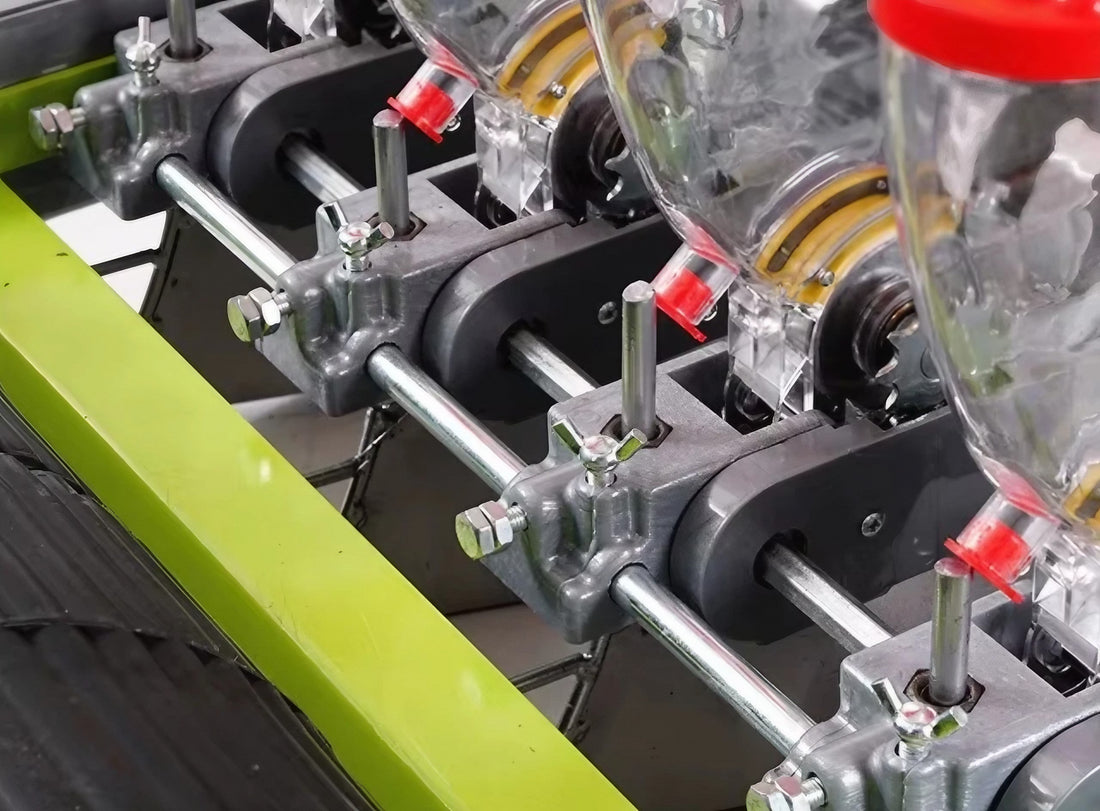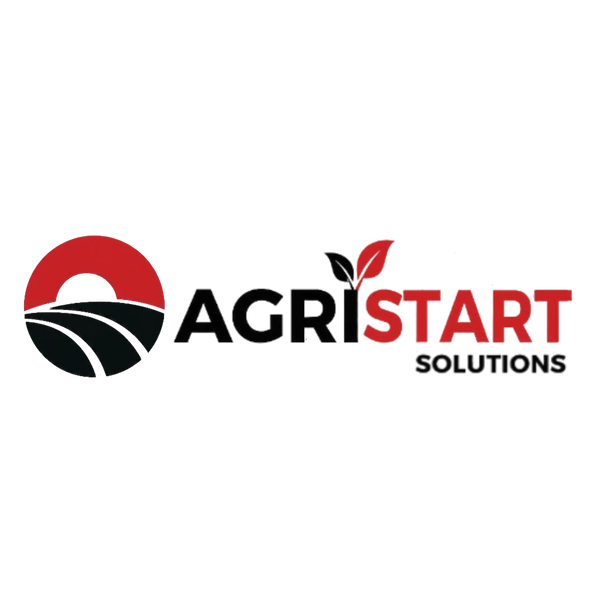
The Rise of Automated Farming Equipment
Share
Published by Agristart Solutions, Delmas - Your trusted partner in modern agricultural technology
South African agriculture stands at the crossroads of tradition and innovation. As the backbone of our economy and food security, the agricultural sector faces mounting pressures from climate change, labor shortages, and the growing demand to feed an expanding population. The answer lies in embracing automated farming and modern agricultural equipment that can transform how we cultivate, harvest, and process our crops.
At Agristart Solutions, a division of African Poultry Equipment based in Delmas, we've witnessed firsthand the transformative power of agricultural automation across the Gauteng province and beyond. Our commitment to bringing cutting-edge farming technology to South African farmers has positioned us at the forefront of this agricultural revolution.
The Current State of South African Agriculture
South Africa's agricultural landscape is diverse, ranging from large commercial operations in the Free State and North West provinces to smallholder farms across KwaZulu-Natal and the Eastern Cape. Traditional farming methods, while deeply rooted in our heritage, often struggle to meet the demands of modern agricultural challenges.
Climate variability, particularly in regions like Mpumalanga where our Delmas headquarters operates, has made consistent crop yields increasingly difficult to achieve. Water scarcity, a persistent challenge across the country, demands more efficient irrigation systems. Meanwhile, the rising cost of labor and skilled agricultural workers has made automation not just attractive, but essential for maintaining competitive farming operations.
Understanding Agricultural Automation
Agricultural automation encompasses a broad spectrum of technologies designed to reduce human intervention while increasing efficiency, precision, and productivity. From GPS-guided tractors that can plant with millimeter accuracy to sophisticated feed processing machines that ensure optimal livestock nutrition, automation is reshaping every aspect of modern farming.
The benefits extend far beyond simple mechanization. Automated systems collect valuable data, enabling farmers to make informed decisions about planting schedules, fertilizer application, and harvest timing. This data-driven approach to agriculture, often called precision farming, represents the future of sustainable food production.
Key Areas of Agricultural Automation
Crop Production and Field Management
Modern tractors equipped with GPS guidance systems have revolutionized field operations across South Africa's maize belt. These systems ensure precise planting patterns, reduce overlap in fertilizer application, and minimize fuel consumption. Variable rate technology allows farmers to apply inputs only where needed, reducing costs while maximizing yields.
Automated irrigation systems, particularly crucial in water-scarce regions like the Northern Cape, use soil moisture sensors and weather data to deliver precise amounts of water exactly when crops need it. This technology has proven invaluable for high-value crops like grapes in the Western Cape wine regions and citrus fruits in Limpopo.
Livestock Management Revolution
The livestock sector, a cornerstone of South African agriculture, has embraced automation with remarkable success. Automated feeding systems ensure consistent nutrition delivery, crucial for maintaining milk production in dairy operations and optimal growth rates in beef cattle. Smart monitoring systems track animal health, detect estrus cycles, and alert farmers to potential issues before they become serious problems.
Feed processing equipment, such as our professional-grade chaff cutters and mixers, has transformed how farmers prepare livestock nutrition. These machines not only save countless hours of manual labor but also ensure consistent feed quality that directly impacts animal performance and farm profitability.
Post-Harvest Processing Excellence
Modern grain handling and processing equipment has dramatically improved the quality and efficiency of post-harvest operations. Automated cleaning, sorting, and packaging systems reduce labor costs while ensuring consistent product quality that meets both domestic and export standards.
For smaller operations, portable processing equipment offers the flexibility to handle varying crop volumes while maintaining professional standards. This democratization of processing technology has enabled more farmers to add value to their produce rather than selling raw commodities.
The South African Advantage
South Africa's agricultural automation journey benefits from several unique advantages. Our well-developed infrastructure, particularly in provinces like Gauteng and the Western Cape, supports the implementation of sophisticated farming technologies. The presence of world-class agricultural research institutions, including those at the University of Pretoria and Stellenbosch University, ensures continuous innovation and adaptation of global technologies to local conditions.
Our diverse climate zones, from the Mediterranean conditions of the Western Cape to the subtropical regions of KwaZulu-Natal, provide ideal testing grounds for various automated farming solutions. This diversity has made South African agriculture remarkably adaptable and innovative.
Economic Impact and Benefits
The economic benefits of agricultural automation extend far beyond individual farms. Increased productivity directly contributes to food security, while reduced production costs help keep food prices affordable for consumers. Export competitiveness improves when South African products meet international quality standards consistently achieved through automated processing.
Labor efficiency gains are particularly significant. While automation may reduce the need for manual labor in some areas, it creates opportunities for skilled technical positions in equipment operation and maintenance. This shift represents an evolution rather than elimination of agricultural employment.
Cost savings accumulate across multiple areas including reduced fuel consumption through precision application, lower input costs through variable rate technology, decreased crop losses through timely automated interventions, and improved equipment longevity through proper automated maintenance schedules.
Overcoming Implementation Challenges
Despite the clear benefits, implementing agricultural automation faces several challenges in the South African context. Initial capital investment can be substantial, particularly for smaller farming operations. However, financing options and government support programs are increasingly available to help farmers make this transition.
Technical expertise requirements have been addressed through comprehensive training programs offered by equipment suppliers like Agristart Solutions. Our technical support team provides ongoing assistance to ensure farmers maximize the benefits of their automated systems.
Infrastructure limitations in rural areas are gradually being addressed through improved connectivity and power supply projects. The rollout of broadband internet across farming regions has been particularly crucial for enabling remote monitoring and data analysis capabilities.
The Role of Agristart Solutions
As a leading agricultural equipment supplier based in Delmas, Agristart Solutions has positioned itself as more than just an equipment provider. We serve as partners in our customers' journey toward agricultural modernization. Our comprehensive approach includes needs assessment and planning, equipment selection and customization, installation and commissioning, training and ongoing support, and maintenance and upgrade services.
Our location in Delmas provides strategic access to major farming regions across Gauteng, Mpumalanga, and the Free State. This positioning allows us to offer responsive service and support to our customers throughout their automation journey.
Being a division of African Poultry Equipment brings additional expertise in livestock management systems, complementing our crop production equipment offerings. This integrated approach ensures farmers can implement comprehensive automation solutions across all aspects of their operations.
Future Trends and Technologies
The future of agricultural automation promises even more exciting developments. Artificial intelligence and machine learning are beginning to enable predictive analytics that can forecast optimal planting times, predict pest outbreaks, and optimize resource allocation with unprecedented accuracy.
Drone technology is expanding beyond crop monitoring to include precision application of pesticides and fertilizers. Advanced sensor networks provide real-time data on soil conditions, plant health, and environmental factors. Robotic systems for harvesting and crop maintenance are becoming increasingly sophisticated and cost-effective.
The integration of blockchain technology promises improved traceability and quality assurance throughout the agricultural supply chain, opening new markets and premium pricing opportunities for South African producers.
Making the Transition
For farmers considering the transition to automated systems, success depends on careful planning and phased implementation. Starting with high-impact, cost-effective solutions often provides the best return on investment while building confidence and expertise.
Assessment of current operations helps identify the most beneficial automation opportunities. Training and skill development ensure successful implementation and ongoing optimization. Gradual expansion allows farmers to build expertise while managing financial risk effectively.
Partnership with experienced suppliers like Agristart Solutions provides access to expertise, financing options, and ongoing support that makes the transition smoother and more successful.
Conclusion
The future of South African agriculture lies in embracing automated farming technologies that enhance productivity, sustainability, and profitability. While challenges exist, the benefits far outweigh the obstacles, and support systems are increasingly available to help farmers make this crucial transition.
At Agristart Solutions, we're committed to supporting South African farmers on this journey toward agricultural modernization. Our comprehensive range of automated farming equipment, combined with expert support and training, positions us as the ideal partner for farmers ready to embrace the future of agriculture.
The time for agricultural automation in South Africa is now. With the right equipment, support, and commitment to innovation, our farmers can continue to feed the nation while building profitable, sustainable operations that will thrive for generations to come.
Ready to explore automated farming solutions for your operation? Contact Agristart Solutions in Delmas today. Our expert team is ready to help you assess your needs and develop a customized automation strategy that fits your budget and goals. Visit our showroom or call us to schedule a consultation and take the first step toward revolutionizing your farming operation.
Agristart Solutions - A Division of African Poultry Equipment
Delmas, Gauteng, South Africa
Transforming Agriculture Through Innovation
